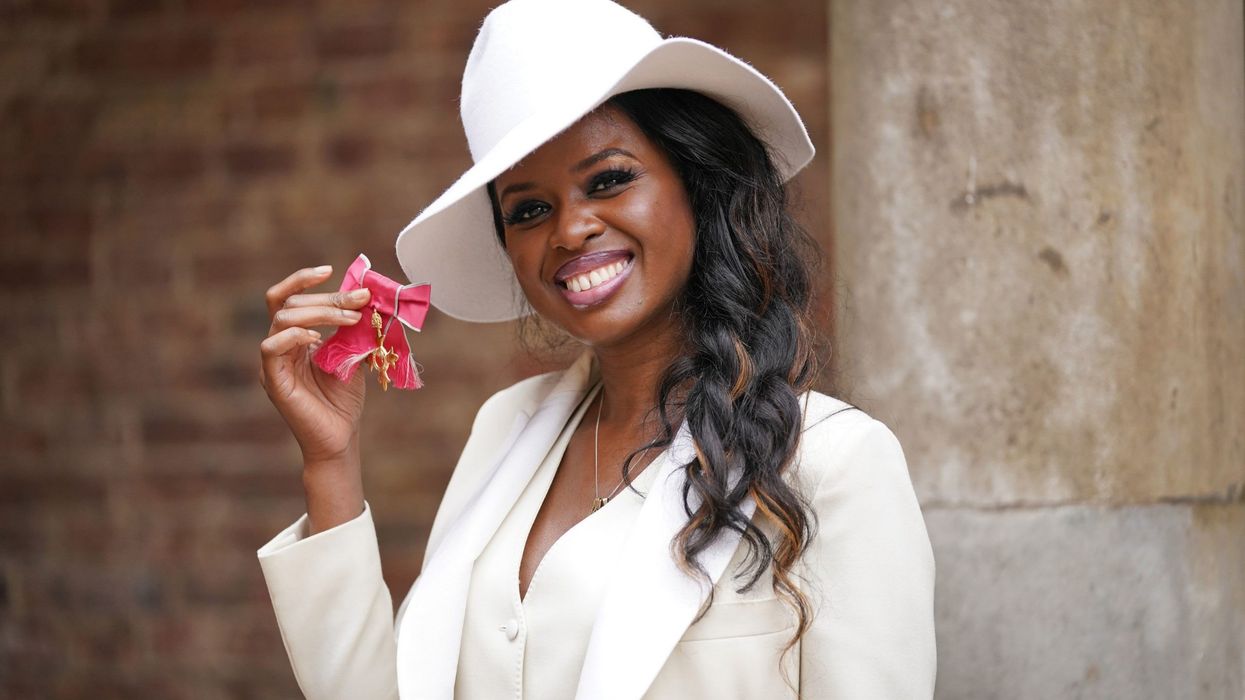ONE of Britain’s most powerful media figures has revealed she had to tackle her own attitudes long before she became a recognised champion of diverse talent.
June Sarpong, the BBC’s head of creative diversity, described her shock and bewilderment at her own prejudice during an exclusive interview with the Asian Media Group’s (AMG) newly launched Diversity Hub last Thursday (26).
Recounting her reaction to a guest while working in the US several years ago, she said she had made all sorts of assumptions about him and realised later that it was an example of unconscious bias. Sarpong is the headline speaker at AMG’s Women of Colour Conference next Thursday (9).
She told the Diversity Hub why she believed those in positions of influence should go on a journey to learn more about equality, diversity and inclusion.
Talking about the original incident, Sarpong said she had to re-evaluate how she felt about the contributor and why.
“It was the funniest thing. I felt immediately uncomfortable around him,” she admitted.
“And he hadn’t even done anything – but I had made up in my head all these ideas about who I thought he was, and that was the first moment I was able to understand unconscious bias from the other side.”
Sarpong, who was born in the capital, grew up on a council estate in east London after her parents emigrated to Britain from Ghana.
She knew the case for diversity, but still reacted to someone different unfairly and it was the start of her own journey on inclusion, she revealed. She said she was so used to seeing similar people that when someone different stepped into what she had begun to think of as “homogenous sets and themes”, she had flinched and reacted negatively towards that person.
“I should have known better and that’s what really made me want to start a conversation around these issues,” Sarpong explained.
She said the incident helped her to write her first book on the subject – Diversify – and later, The Power of Women.
As one of the most successful British TV presenters of her generation, Sarpong said she never thought she could think about anybody in that way, but she had.
“When I found myself doing it, that’s when I realised this is what happens when you meet somebody and you perceive a different view and the wall goes up,” she said.
Sarpong, who first made her name on Channel 4, said she had faced prejudice in the UK. She revealed that she aspired to present prime-time Saturday evening family entertainment shows on BBC1 and ITV, but did not get the opportunity in the mid 2000s.
Equality, Diversion & Inclusion (EDI), as it is often termed in the corporate world, is basically, according to Sarpong, “allowing everybody to fulfil their potential – and how can we create the kind of framework that means they can do “That, for me, is the key driver in everything I do in this space”.
Sarpong was appointed to her newly created position at the BBC in 2019. She has responsibility for creating a more diverse workforce behind the camera and improving the range and type of drama the corporation makes to better reflect Britain as a country.
In the full interview, which can be viewed and read on the Diversity Hub, Sarpong talks about who inspired her to go into television, what held her back, why the BBC appointed her, the progress that has been made since Black Lives Matter, what the present challenges are and how she sees the future of EDI and her hope that the BBC can be among those that lead the way.
Other speakers at the AMG Women of Colour Conference include Louise Stigant, managing director of Mondelez in the UK; Andrew Pearce, managing director of operations for business consultancy powerhouse, Accenture; and Nikki Vadera, marketing director of Henkel UK. The conference, which will debate issues around equality, diversity and inclusion, is the first in a series that will be partially hosted by the newly launched AMG Diversity Hub over 2021-2022.
For more on the Women of Colour conference, see www.amg.biz/events/women-of-colourconference. For details about the new AMG Diversity Hub, visit https://diversityhub.com/




